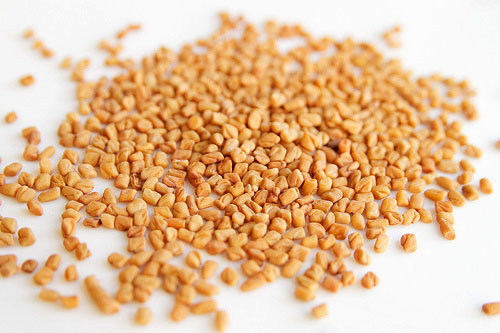
Health Benefits:
Aids in digestion
Aids in intestinal disorders
Enhances production of breast milk
Helps control LDL cholesterol levels
Lowers blood pressure
May reduce cholesterol
May reduce risk of heart disease
May regulate blood sugar
Promotes heart health
Relieves PMS
Relieves constipation
Relieves sore throat
Nutrition:
Serving size: 1 tbsp; Calories: 36; Fat: 0.7g; Cholesterol: 0mg; Sodium: 7mg; Carbs: 6g; Fiber: 3g; Sugars: 0g; Protein: 2.6g; Potassium: 2%DV; Vitamin A: 0%DV; Vitamin C: 0%DV; Calcium: 2%DV; Iron: 20%DV
Did You Know?
- Traditionally, fenugreeks have been in use to cure digestive problems
- Fenugreek seeds are rich source of minerals, vitamins, and phytonutrients. 100 g seeds provide 323 calories
- Its seeds have been used in many traditional medicines as a laxative, digestive, and as a remedy for cough and bronchitis
Ways to Eat:
- Baked
- Boiled
- Ground (can be added to drinks and used as a seasoning)
Farming Trivia:
- Fenugreek is native to sub-Himalayan plains of Indian subcontinent, and today; it is widely grown all-over southern and Mediterranean Europe, Middle-East Asia and northern African regions
Note: Always consult a physician for any specific health questions and concerns. Some of this information may be subject to change should there be any new findings from Federal Health Administration (FHA), Food & Drug Administration (FDA), American Medical Association (AMA), American Cancer Society (ACS), and / or other leading food, nutrition and medical advisors.

